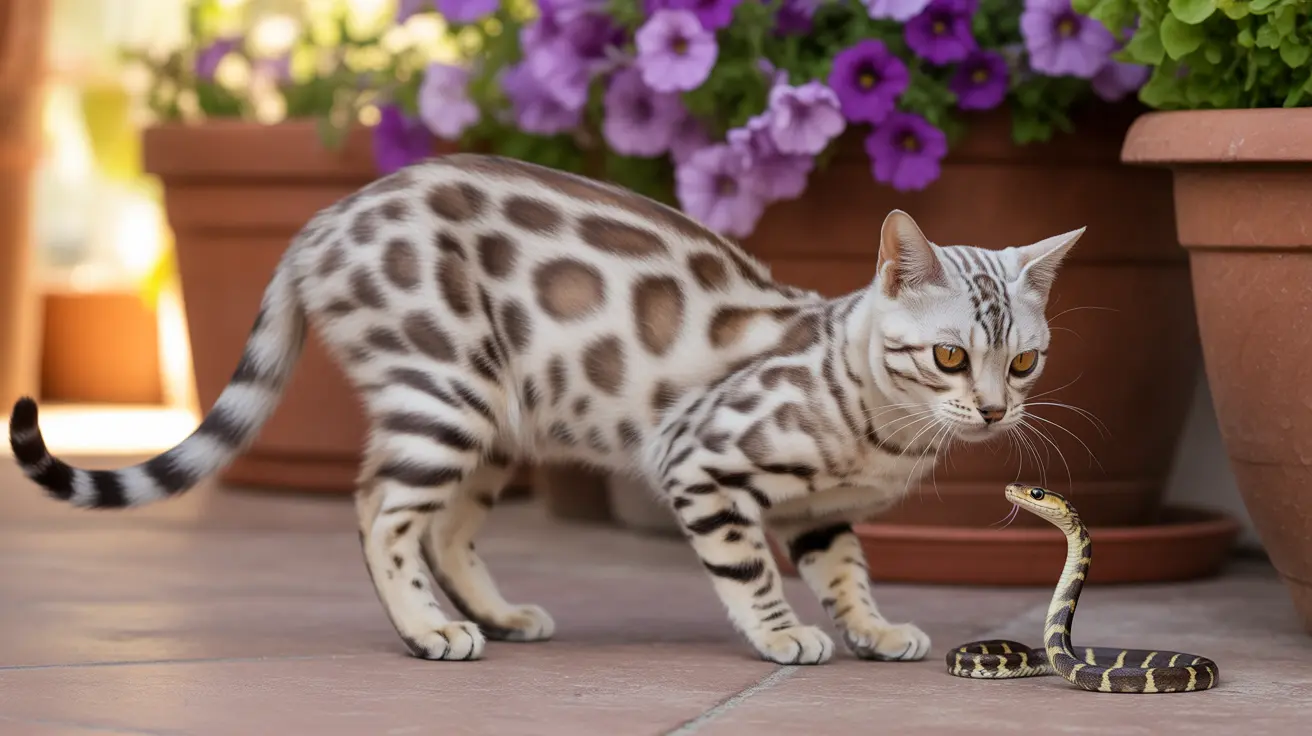Understanding Cats' Natural Hunting Behavior
Cats are skilled opportunistic hunters, equipped with sharp reflexes and keen senses that make them formidable predators. When it comes to snakes, cats typically engage more out of predatory play instinct rather than hunger.
Most domestic cats that encounter snakes will stalk, chase, and potentially kill them, but rarely consume them. This behavior aligns with their natural hunting instincts, where the thrill of the chase often matters more than the meal.
When Do Cats Hunt Snakes?
Feral cats and outdoor cats are more likely to encounter and engage with snakes than indoor pets. These encounters typically occur during warmer months when snakes are more active and visible.
Cats most commonly interact with smaller, nonvenomous snakes such as garter snakes, gopher snakes, and kingsnakes. These species are easier for cats to overcome and pose less risk during confrontation.
The Risks of Snake Encounters
While cats may be capable hunters, snake encounters can be dangerous. Venomous snake bites can cause severe injury or death in cats, requiring immediate emergency veterinary care.
- Defensive bites that may become infected
- Physical trauma during the encounter
- Transmission of parasites or pathogens if the snake is consumed
- Potential internal injuries if the snake is partially ingested
How Cats Detect and Track Snakes
- Superior hearing that can detect snake movement from considerable distances
- Keen sense of smell that picks up snake pheromones
- Excellent vision that spots even subtle movement
- Highly sensitive whiskers that aid in close-range detection
Safety Recommendations for Pet Owners
- Keep cats indoors or supervise outdoor time
- Maintain your yard to reduce snake-friendly hiding spots
- Install snake-proof fencing if necessary
- Never encourage your cat to hunt snakes
- Keep emergency vet contact information readily available
Frequently Asked Questions
Do cats actually eat snakes or just kill them for fun?
Most cats kill snakes as part of their natural hunting behavior but rarely eat them. Well-fed domestic cats typically engage in snake hunting for play rather than food, though feral cats may occasionally consume their prey when hungry.
What types of snakes are cats most likely to hunt or eat?
Cats typically hunt smaller, nonvenomous snakes like garter snakes, gopher snakes, and kingsnakes. These species are easier for cats to overcome and pose less immediate danger during confrontation.
Are venomous snakes dangerous to cats if they try to hunt them?
Yes, venomous snakes pose a serious threat to cats. A bite from a venomous snake can cause severe injury or death if not treated immediately. Always seek emergency veterinary care if you suspect your cat has been bitten by any snake.
Can I rely on my cat to control or keep snakes away from my yard?
No, cats should not be relied upon for snake control. While cats may deter some snakes, this approach is inconsistent and puts your cat at unnecessary risk. Professional pest control and habitat management are safer, more effective solutions.
What should I do if my cat gets bitten by a snake?
If your cat is bitten by a snake, seek immediate veterinary care, even if you're unsure whether the snake was venomous. Keep your cat calm and still during transport to minimize venom spread, and if possible, safely photograph or describe the snake to aid in treatment.
Remember, while cats are skilled hunters, their safety should always be your primary concern. Understanding the relationship between cats and snakes helps ensure better protection for your feline companion while respecting the natural place of both animals in the ecosystem.






